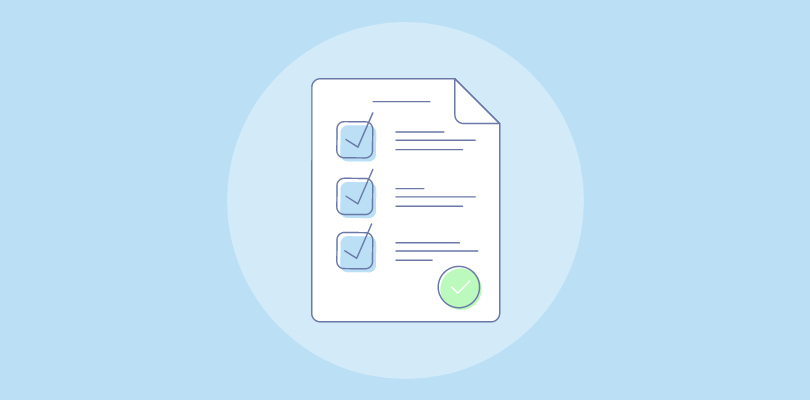Imagine being a detective, but instead of solving mysteries involving crimes, you’re tasked with unraveling the enigma of human behavior.
That’s precisely what a functional behavior assessment (FBA) is all about – a comprehensive process that delves deep into the root causes of challenging behaviors.
In the realm of business, mental health, and even education, understanding why individuals behave in certain ways is crucial for developing effective intervention strategies.
Do you wish to know more about it?
Here, I have brought a detailed guide on functional behavior assessments and how they help shape future growth in professional and educational settings.
Let’s dive deeper!
What Is a Functional Behavioral Assessment?
A functional behavior assessment (FBA) is a systematic process used to understand the purpose or function of an individual’s behavior in both educational and business employment settings. This approach involves identifying specific problem behaviors, analyzing the context in which these behaviors occur, and understanding the factors that reinforce or maintain the behavior.
Businesses can use FBA to improve employee performance or address conduct issues. For instance, if an employee constantly misses deadlines, an FBA could identify the lack of skills or motivation as the root cause, leading to targeted training or incentive programs.
In educational settings, the purpose of functional behavior assessment is to assist in developing strategies to address learner behaviors that interfere with learning, aiming to replace them with positive skills.
Let’s see a functional behavior analysis example. Suppose a learner frequently interrupts class, an FBA might reveal that the person is seeking attention. Thus, the intervention could focus on teaching the learner appropriate ways to gain attention.
Read: What Is a Behavioral Assessment & How to Conduct It in the Workplace
Who Should Conduct a Functional Behavior Assessment?
Functional Behavior Assessments (FBAs) are a valuable tool for businesses seeking to optimize employee performance and address behavioral concerns. HR professionals, industrial-organizational psychologists, or behavior analysts typically conduct FBAs in the workplace setting. These specialists possess the expertise to analyze employee work behaviors and develop targeted interventions.
Benefits of FBA in Business:
- Enhanced Performance: By identifying the root causes of problematic behaviors, FBAs can help develop strategies to improve employee productivity and efficiency.
- Reduced Conflict: FBAs can shed light on factors contributing to interpersonal issues at work, leading to more harmonious working relationships.
- Improved Morale: Addressing behavioral concerns can create a more positive and productive work environment for all employees.
While FBAs are a powerful tool in business, they can also be used in educational settings to identify the root causes of student behaviors, facilitating tailored intervention strategies. This approach enables educators to create supportive environments that enhance learning and personal growth. Through FBAs, schools can promote positive behavior changes, improving the overall educational experience for all students.
Check out this case study: How DMS Boosted Student Scores Using ProProfs Quiz Maker | Case Study
When to Do a Functional Behavior Assessment
You can conduct an FBA whenever there’s a noticeable, persistent pattern of challenging behaviors that impede learning, productivity, or safety.
Here are a few instances when doing an FBA can offer fruitful outcomes:
For Business and Employment
- Performance Issues: When an employee’s behavior directly affects their job performance or overall productivity, an FBA can pinpoint underlying factors and guide the development of interventions to improve outcomes.
- Team Dynamics Problems: In cases where interpersonal conflicts, poor communication, or other detrimental behaviors impact team cohesion and effectiveness, FBAs can identify solutions to improve workplace relationships and productivity.
- Safety Concerns: If an employee’s actions pose safety risks to themselves or others, conducting an FBA can be crucial in implementing strategies to prevent accidents and ensure a safe working environment.
- Preventative Measures: In order to foster a positive workplace culture, enhance employee satisfaction, and reduce turnover rates by addressing potential behavioral issues before they escalate.
For Education
- Persistent Disruptive Behavior: When a student consistently exhibits behaviors that disrupt classroom learning or the educational environment, it indicates a need to understand and address the underlying reasons for such behavior.
- Suspension or Disciplinary Referrals: Before or following significant disciplinary actions, FBAs can help identify the root causes of behaviors leading to suspensions or referrals, aiming to develop more effective, positive interventions.
- Special Education Evaluation: It is part of evaluating a student for special education services, particularly for those who exhibit challenging behaviors, to ensure that their educational needs are accurately identified and met.
- IEP Development: When creating or updating an Individualized Education Program (IEP) for students with behavioral challenges, an FBA provides essential insights for tailored behavioral support strategies.
Take a Behavioral Assessment Quiz Now
What Are the Components of a Functional Behavior Assessment?
The major components of a functional behavior assessment are as follows:
- Identifying the Behaviors: Clearly and objectively defining the behaviors of concern is crucial. This involves pinpointing specific actions that are observable and measurable, which could impact group dynamics, individual performance, or the overall atmosphere.
- Collecting Data: Gathering detailed information about the behaviors, including their frequency, duration, context, and possible triggers. This may involve direct observations, feedback from others involved, and a review of any existing records. The aim is to paint a complete picture of the behavior within its natural setting.
- Developing a Hypothesis: Based on the data collected, forming a hypothesis about why the behavior occurs. This involves considering what the individual gains or avoids through their behavior, taking into account the unique motivations and pressures of their environment.
- Functional Analysis: Testing the hypothesis by observing the behavior under different conditions. This step may vary in its formality, depending on the ability to manipulate environmental variables. The goal is to identify clear relationships between conditions and behaviors.
- Developing an Intervention Plan: Creating a tailored plan that addresses the behavior through positive, constructive strategies. This involves teaching alternative behaviors that fulfill the same need as the problematic behavior, adjusting the environment to reduce triggers, and planning responses for when the behavior occurs.
- Implementation and Monitoring: Carefully implementing the intervention plan while continuously monitoring its effectiveness. This involves collaboration with all relevant parties and making data-driven adjustments to the plan as needed.
- Review and Modification: Regularly review the intervention’s impact and make necessary adjustments. This iterative process ensures that interventions remain responsive to changing needs and conditions.
Read: 13 Different Types of Assessments You Should Know About
FREE. All Features. FOREVER!
Try our Forever FREE account with all premium features!
How to Conduct a Functional Behavioral Assessment
Conducting a functional behavioral assessment (FBA) involves a systematic approach to understanding the reasons behind specific behaviors, with the ultimate goal of developing effective strategies to address those behaviors.
Here’s a breakdown of the steps to help you get a better idea about how to do a functional behavioral assessment:
1. Identify the Target’s Behavior
The first step is to define the behavior of concern clearly. This behavior should be observable and measurable, making it clear when it occurs and when it does not. For example, an educator or employer may note instances of disruptive behavior or lack of productivity without initially understanding why these behaviors are happening.
2. Gather Information and Data
Once the behavior is identified, the next step is to collect as much information about it as possible. This involves observing the behavior under different circumstances, interviewing individuals who are frequently in contact with the person exhibiting the behavior, and reviewing any available records or documentation. The aim is to identify patterns or triggers associated with the behavior.
3. Develop a Hypothesis
Based on the collected information, develop a hypothesis or educated guess about why the behavior is occurring. This hypothesis should consider the triggers, motivations, and outcomes associated with the behavior. Essentially, it’s an attempt to understand what the individual gains from exhibiting the behavior or what they might be trying to avoid.
4. Test the Hypothesis
To verify the accuracy of the hypothesis, it may be tested through manipulation of the environment, observations, and further data collection. This could involve changing the circumstances that precede the behavior or modifying the consequences that follow it, to see if there is any impact on the behavior itself.
5. Analyze Data & Develop Strategies
With the hypothesis tested, the next step is to analyze the data collected to confirm the reasons behind the behavior. This analysis helps develop targeted strategies to reduce or modify the behavior. These strategies might include changes in the environment, teaching new skills to replace the problematic behavior, or altering the consequences associated with the behavior.
6. Evaluate
The final step is to evaluate the effectiveness of the intervention strategies. This involves continued observation and data collection to determine if there has been a significant change in the behavior. If the behavior has not improved, it may be necessary to revisit earlier steps in the process, possibly refining the hypothesis or developing new strategies.
Throughout this process, collaboration among educators, employers, and other relevant individuals is crucial for a successful outcome.
The goal is not only to address the behavior itself but also to improve the overall environment for the individual and those around them.
Also Watch: How to Create an Assessment Online
What Happens During a Functional Behavioral Assessment?
While conducting a functional behavioral assessment, the team assesses the individual’s behavior in different contexts, gathers insights from regular interactions through interviews, and reviews historical documentation.
This comprehensive data collection helps in forming a hypothesis about the underlying reasons for the behavior, such as seeking attention or avoiding tasks. Testing the hypothesis involves modifying environmental factors or interactions and observing the effects.
The process, deeply analytical and iterative, culminates in crafting targeted interventions to modify the behavior based on validated hypotheses. The ultimate goal is to address the behavior by understanding and meeting the individual’s needs.
Shape Future Growth With Functional Behavior Assessments
Understanding and modifying challenging behaviors through functional behavioral assessments (FBA) can significantly enhance personal and professional development. You can use these psychometric assessments to identify patterns, and online tools like ProProfs Quiz Maker can help you.
These tools contain some really good features, such as an AI quiz maker, 100+ customizable FBA templates, real-time feedback, and detailed analytics, which facilitate a deeper understanding of behaviors and their underlying causes.
You can use them to design effective FBAs, track progress over time, and implement data-driven strategies for positive behavioral change. This powerful combination of assessment and technology paves the way for meaningful transformations.
Frequently Asked Questions
What tools can be used for functional assessment?
Various tools help professionals conduct effective FBAs, including:
- Direct Observation Forms – Used to record behaviors in different settings.
- ABC (Antecedent-Behavior-Consequence) Chart – Identifies triggers, behaviors, and consequences.
- Behavior Rating Scales – Standardized tools like the Functional Analysis Screening Tool (FAST) or the Motivation Assessment Scale (MAS).
- Interviews & Questionnaires – Gather insights from teachers, parents, or colleagues.
- Digital Tracking & Data Collection Tools – Software like ProProfs Quiz Maker, Q-Global, or BehaviorSoft helps automate assessment and data analysis.
What are the components of a functional assessment?
A comprehensive functional behavior assessment includes:
- Identifying the Target Behavior – Clearly defining the specific behavior being assessed.
- Data Collection – Using observation logs, interviews, and behavior tracking tools.
- Analyzing Antecedents & Consequences – Understanding what triggers the behavior and what happens afterward.
- Developing a Hypothesis – Identifying why the behavior occurs (e.g., escape, attention-seeking, sensory stimulation).
- Testing & Implementing Interventions – Applying strategies such as reinforcement, environmental changes, or skill-building activities.
- Monitoring & Adjusting the Plan – Evaluating progress and modifying the intervention if needed.

 We'd love your feedback!
We'd love your feedback! Thanks for your feedback!
Thanks for your feedback!







